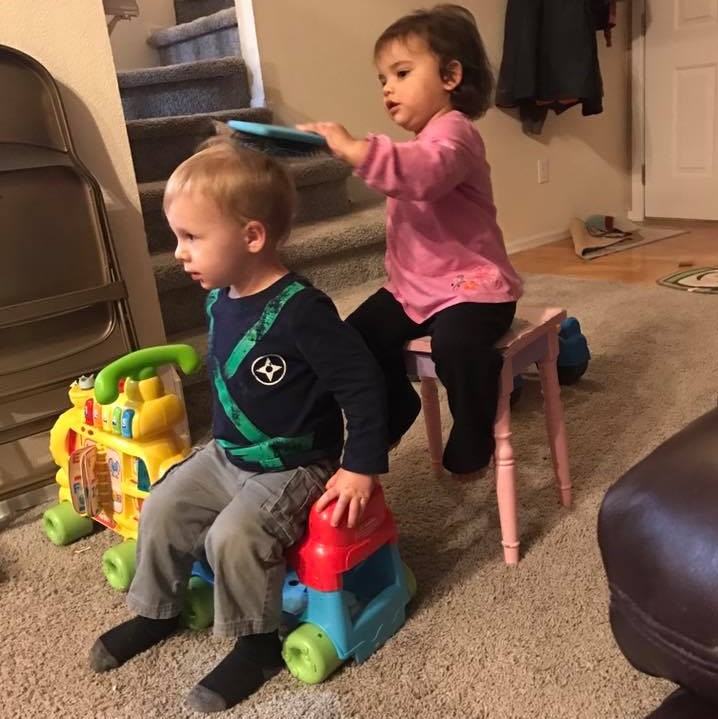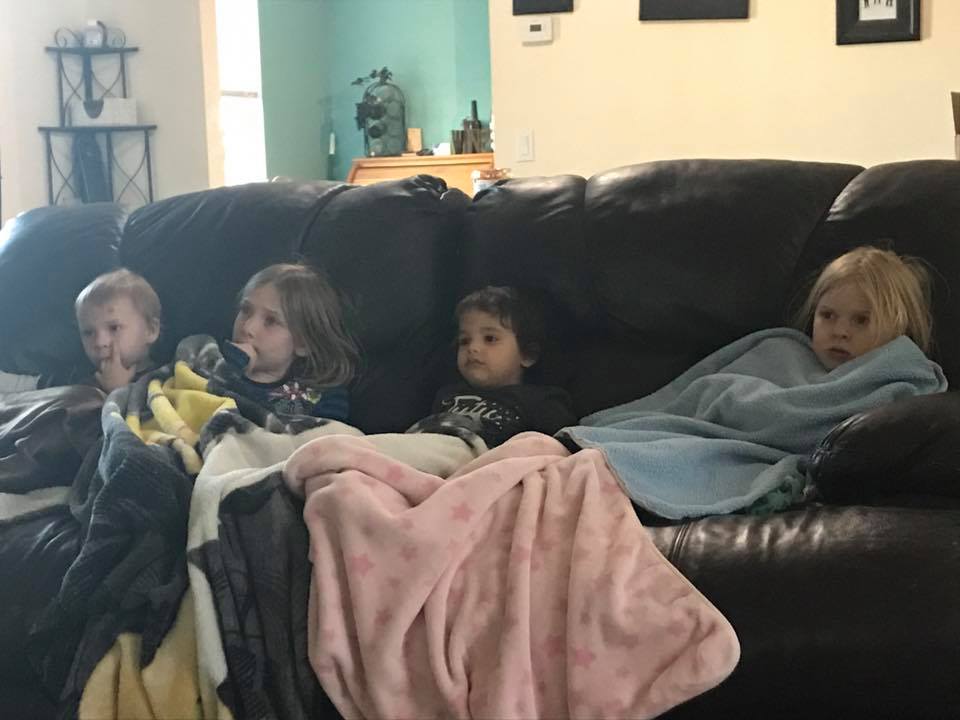But the fruit of the Spirit is love, joy, peace, forbearance, kindness, goodness, faithfulness, gentleness and self-control. Against such things there is no law.
Galatians 5:22-23
“He’s hitting the other kids a lot.” Uh oh. Never something a parent wants to hear from the daycare provider, but there we were. Eliam had always been the quieter, calmer child, but as a late-talking two year old, he was having trouble expressing his frustration to the other kids at preschool. Hence, the hitting. While normal, it was not acceptable, and I had to figure out a way to effectively address it.
This was the second time one of the kids had exhibited harmful behavior toward other children.
When Ana Lia was almost two, we lived with another family, who also had a toddler. She bit him frequently, and I had no idea what to do about it. Not only was I really embarrassed about what this “said” about my parenting, but my kids were actually HURTING other people! I knew how immediate the need was to teach them that neither biting nor hitting was okay.

Thankfully, I had some good friends who offered excellent advice. The Best Behavior Board Books were really helpful to us. We used Hands Are Not For Hitting and Teeth Are Not For Biting. One of the most important first steps is a mindset that “we as a family are going to focus on this for the next few weeks.” In our experience, we saw changes in about two weeks, and then we were able to basically do “maintenance” as needed when they reverted to the behaviors. But the first two weeks take significant, intentional focus.
For hitting, we read the book every day for at least two weeks. “Hands are not for hitting” is a refrain through the book, interspersed between other activities that hands are for. Then we continued the theme throughout the day. Each time we did an activity, I would emphasize, “hands are for brushing our teeth” or “hands are for painting” or “hands are for cleaning up toys.” After I said that during an activity, I immediately followed it up by holding both of Eliam’s hands, looking him in the eye, and saying “Hands are not for hitting. Hands are for gentle. Show me gentle,” at which point we taught him to rub my arm softly. We did this 10-12 times a day for those first two weeks.
Each morning when I dropped him off at daycare, we would take off our shoes and before he could play, we would go through it again: hold both hands, look him in the eye, “hands are not for hitting, hands are for gentle,” rub my arm. Children usually learn best in calm moments with repetition. Trying to teach them not to hit when they are already angry is counterproductive in every way, especially if as parents, we are easily angered when they hit another kid. However, if this has become part of their vocabulary, when we as parents use the exact same phrase during those periods of high emotional outburst, it triggers their memory to the calmer times.

Building that memory in the calm time is the most exhausting part for the first two weeks: we had to watch him constantly. I am a strong believer in independent play and the benefits for children and for parents. Before he could play independently, we had to teach him how…and a basic tenet of that is gentle hands. For those two weeks, we had an eye on him any time he played with another kid, even his sister. We had to physically intercept his hands whenever he raised his hand to hit and calmly said the magic words (using the same voice we practiced during the fun times) “Hands are not for hitting. Hands are for gentle. Show me gentle.” Sometimes, I said “Show your sister gentle” and had him rub her arm gently so that he could see it applied to everyone.
The keys are: repetition, repetition, repetition. For two weeks, go over and over the exact same phrase, and do it all with self-control. For us, after the two weeks, we could back off a little bit from the constant watching, and we even heard Ana Lia tell her brother “Hands are not for hitting!” His daycare teacher told us that he was also doing much better there as well. Victory!

Teaching Ana Lia not to bite used many of the same principles, but it took even more repetition and patience because she was not even two yet. However, she was still capable of learning this skill. We read “Teeth Are Not for Biting.” We were hyper-vigilant about watching her around other children and intercepted her every time she tried to bite someone. Throughout the day, I would imitate almost biting her arm then look at her and say “No. No. Teeth are not for biting.” We also bought her a teething toy, kept it at the ready, and offered it as an alternative when she looked like she was going to bite someone. Again it took about two weeks to fully mitigate the behavior, but this made a huge difference over the long term.
Intense focus on any aspect of parenting is exhausting, and watching children every minute of the day even more so. It is definitely worth it when there is a specific need. Even though it’s tiring, it’s also temporary. And the time investment pays handsome dividends.